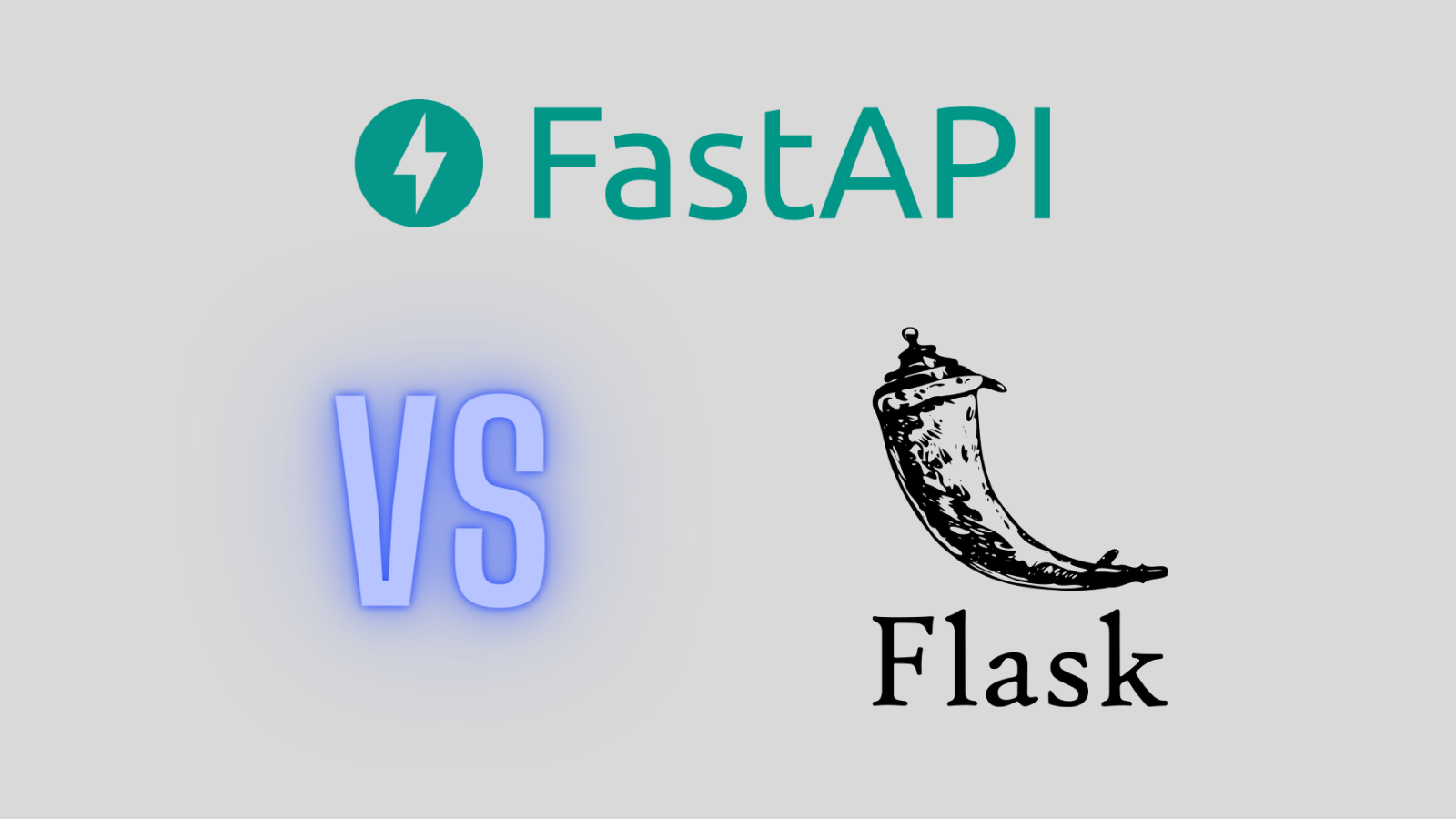
April 20, 2023
Fastapi vs Flask. Which one should you pick?
Python is a versatile language that can be used for web development, scientific computing, and much more. Python has a large ecosystem of libraries and frameworks, making it a popular choice for developers worldwide. When it comes to web development, Python has several popular frameworks, including Flask and FastAPI. In this article, we will explore why you should choose FastAPI over Flask for your next web development project.
Introduction
What are Python Web Frameworks?
Python web frameworks are libraries that provide a set of tools and techniques for building web applications. Python web frameworks can help you to build web applications faster and more efficiently than building them from scratch. Python web frameworks can also help you to write more maintainable code and adhere to best practices.
What is Flask?
Flask is a popular Python web framework that was released in 2010. Flask is a micro-framework, which means that it is lightweight and flexible. Flask is popular among developers who want to build small to medium-sized web applications quickly and easily.
What is FastAPI?
FastAPI is a newer Python web framework that was released in 2018. FastAPI is designed to be fast, easy to use, and scalable. FastAPI is popular among developers who want to build high-performance web APIs quickly and easily.
Why is choosing the right Python Framework important?
Choosing the right Python web framework is important because it can affect the speed, maintainability, and scalability of your web application. Different Python web frameworks have different strengths and weaknesses, and choosing the right one for your project can help you to avoid common pitfalls and ensure that your web application is successful.
Which is easier to setup?
Comparing Flask and FastAPI in terms of ease of setup, FastAPI has an edge over Flask because FastAPI’s automatic generated documentation and type validation makes it easier to get started with. FastAPI has a built-in user interface that allows you to interact with your web API and test your endpoints. Flask, on the other hand, requires additional libraries and setup to achieve the same level of documentation and type validation in FastAPI.
What are the benefits of using a Python Framework?
Using a Python web framework can help you to:
- Build web applications faster and more efficiently
- Write more maintainable code
- Adhere to best practices
- Leverage the strengths of the Python language
- Benefit from a large ecosystem of libraries and tools
Flask vs. FastAPI
Flask: A Brief Overview
Flask is a micro-framework, which means that it is lightweight and flexible. Flask is popular among developers who want to build small to medium-sized web applications quickly and easily. Flask is easy to use and has a low learning curve, which makes it a popular choice for beginners.

This diagram shows that FastAPI acts as a bridge between the web interface and the database, allowing for GET and POST requests to be made. Additionally, FastAPI can also communicate with external services through APIs, which can also send GET and POST requests to FastAPI. FastAPI then processes these requests and interacts with the database or external services to retrieve or manipulate the required data. Finally, FastAPI sends a response back to the web interface with the requested data or result. This flow makes it easy and efficient to create RESTful services with FastAPI.
What are the Pros of using Flask?
- Easy to learn and use
- Lightweight and flexible
- Large ecosystem of extensions and plugins
What are the Cons of using Flask?
- Limited functionality compared to other frameworks
- Requires more work to build complex web applications
- Less suited for large-scale web applications
FastAPI: A Brief Overview
FastAPI is a newer Python web framework that was released in 2018. FastAPI is designed to be fast, easy to use, and scalable. FastAPI is popular among developers who want to build high-performance web APIs quickly and easily. FastAPI has several advantages over Flask.
What are the Pros of using FastAPI?
- Fast and high-performance
- Easy to use and learn
- Built-in support for asynchronous code
- Automatic API documentation using Swagger
- Type hints for better code readability
- Optimized for building APIs
What are the Cons of using FastAPI?
- Smaller ecosystem of extensions and plugins compared to Flask
- Less suited for building web applications with complex business logic
- Requires some knowledge of asynchronous programming concepts
- to get the most out of it
FastAPI vs Flask performance
FastAPI lives up to its name; it is equivalent in performance to languages like NodeJS and Go. It is based on the asyncio library, which enables Python developers to write concurrent code, such as requesting data from APIs, querying databases and reading file contents. Moreover, FastAPI fulfills the ASGI specifications, whereas Flask is limited to the WSGI application.
Conclusion
FastAPI and Flask are both popular Python web frameworks, but they have different strengths and weaknesses. Flask is a good choice for building small to medium-sized web applications quickly and easily, while FastAPI is a better choice for building high-performance web APIs with complex functionality. Ultimately, the choice between FastAPI and Flask comes down to the specific requirements of your project.